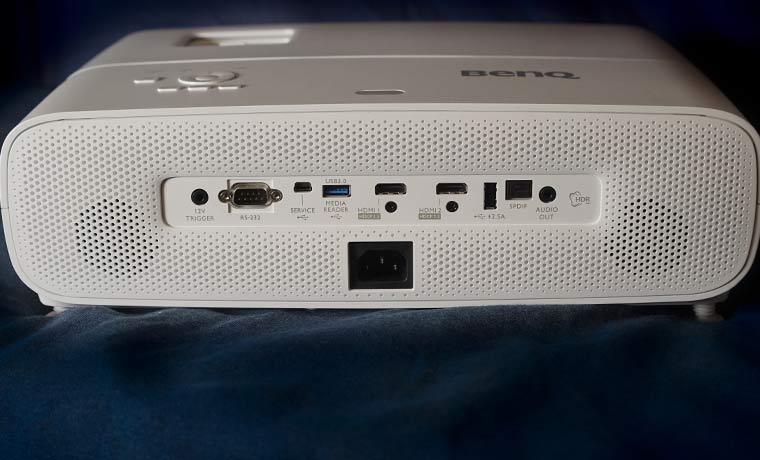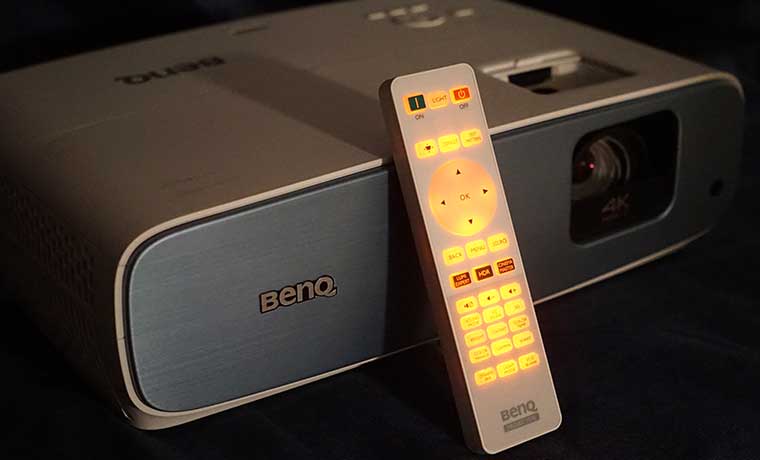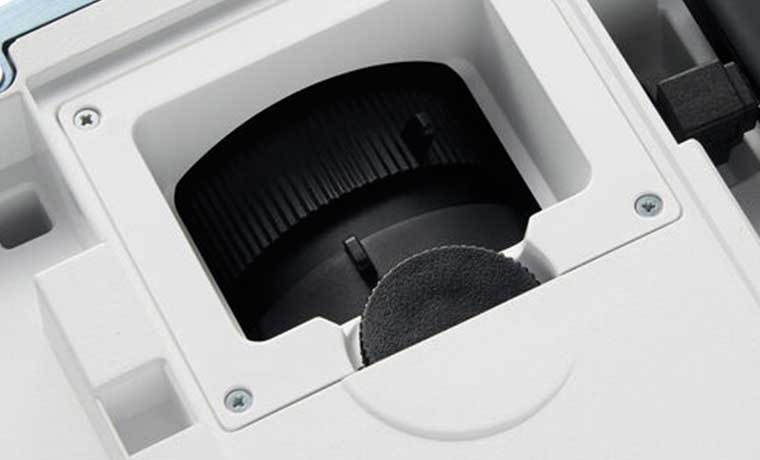There are basically three groups of competing projectors – Other 4K UHD DLP projectors that cost the same or less, 4K capable projectors using 3LCD technology, and more expensive 4K UHD DLP projectors.
Keeping the above summary of the TK850i in mind, let’s start with a comparison from the first group. The Optima UHD50X is a 4K DLP projector with an MSRP of $1699. This projector does not have a dynamic iris but does have dynamic black technology. On paper, it looks like a strong competitor, as it is listed as a gaming projector with fast inputs that the TK850i does not have. We did an interview with Optima on this projector for our 12 days of Projectors holiday series, but I’d love to get my hands on this model to do a detailed review. There are more than a few 4K UHD projectors between $1000 and $2000. Most of them don’t have a dynamic iris, and that’s one thing that really makes the TK850i special. BenQ produces two projectors, the TK850 and the HT3550, that are competitors price- and technology-wise to the TK850i. Frankly, the TK850 is identical to the TK850i, except that the Android TV adapter is not included, and it retails for $100 less. The HT3550 has a lot that is similar to the TK850i with one really large exception which is it's 2000 lumen brightness, almost a third less than the TK850i.
In the world of 3LCD, the EPSON Home Cinema 3800 4K projector. sells for $1699. This projector offers a competitive range of features and performance without any of the potential issues related to DLP, but then adds in three chip issues of its own. This projector specifies 2900 lumens and offers a 40,000:1 contrast ratio.
The BenQ TK850i is a very capable projector offering really good out of the box color and brightness options. This projector is capable of doing a visibly better job on very dark scenes than many of its DLP and LCD competitors.
I’m going to give BenQ props for both its black levels, color and HDR-handling, and in producing an all-around solid 4K HDR-capable home theater projector.
That’s pretty much the extent of the relatively direct competition, other than a lot of projectors that do not support 4K. There are a number of good ones, but I’m guessing that you are interested in 4K because you’ve made it all the way through my review and are at the summary.





